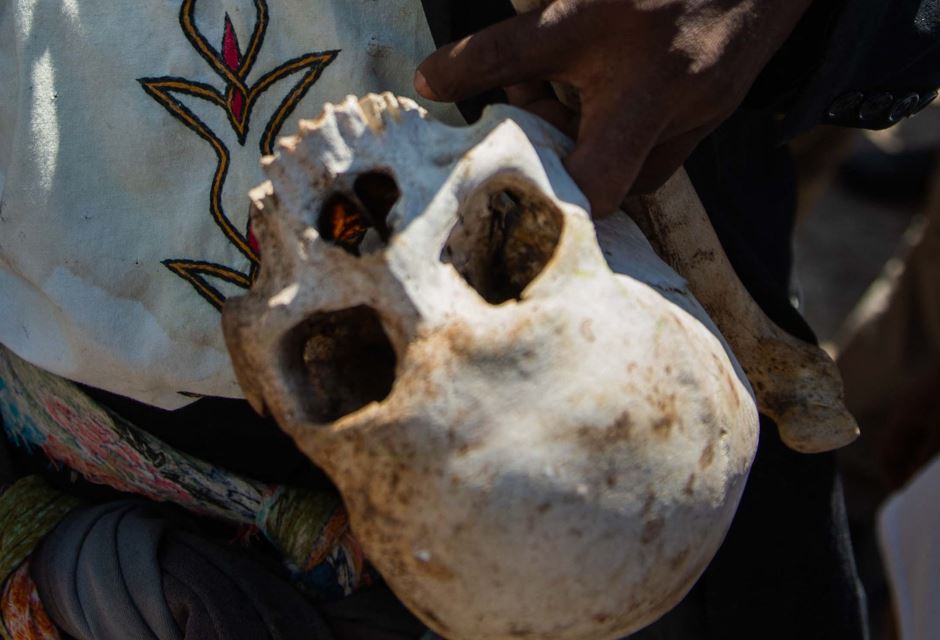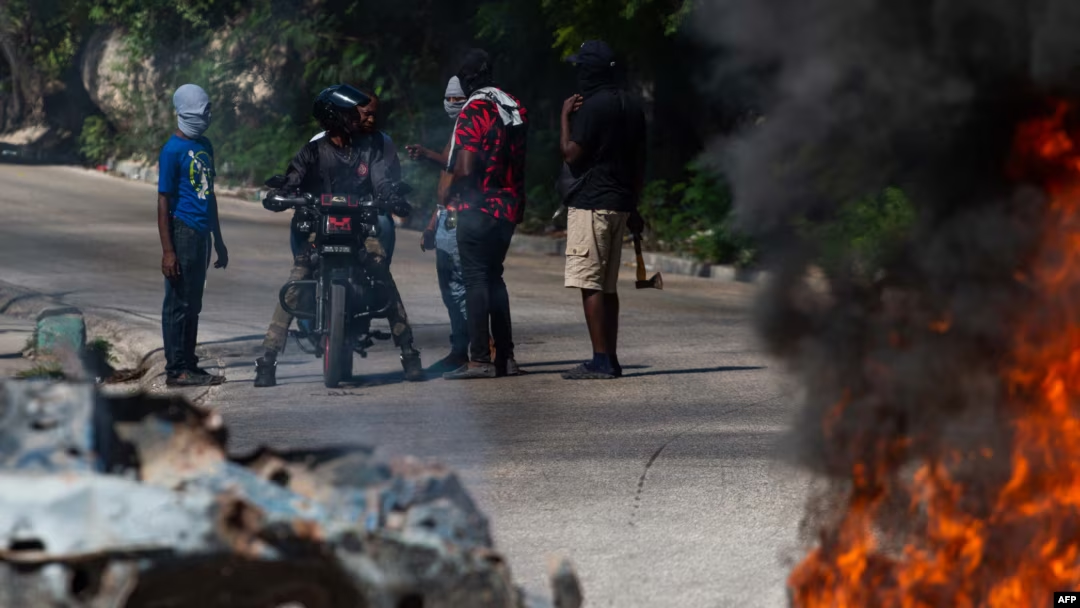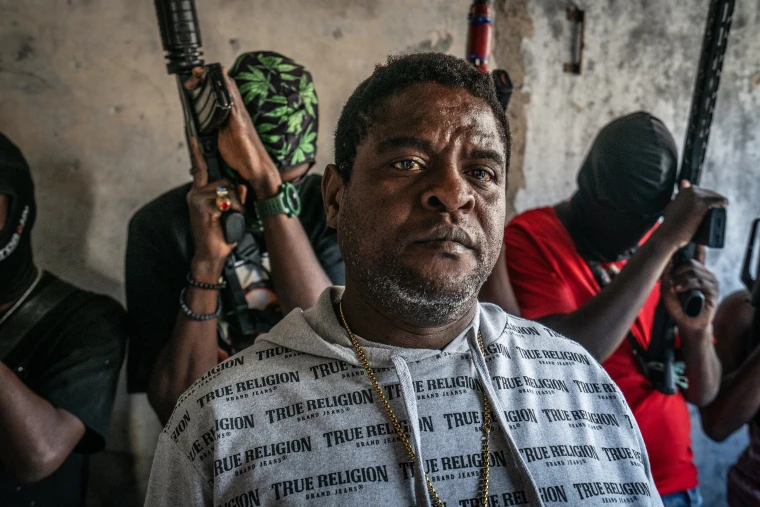Haiti, a country steeped in a rich cultural and spiritual heritage, is reeling from a devastating massacre that has left nearly 200 people dead. The atrocity, widely believed to have targeted the nation’s voodoo practitioners, has drawn international outrage and cast a stark spotlight on the intersection of political instability, societal tensions, and religious persecution. This tragedy is not just a humanitarian crisis; it’s a grim reminder of the struggles faced by vulnerable communities within an already fragile state.
Understanding Haiti’s Context: A Nation on the Brink
Haiti has long been grappling with political instability, economic hardship, and social unrest. The assassination of President Jovenel Moïse in 2021 exacerbated the country’s political vacuum, leaving it vulnerable to gang violence and lawlessness. Armed groups, often filling the power void left by a weakened government, have escalated their activities, preying on communities and further destabilizing the nation.
Amid this chaos, voodoo, a religion practiced by millions in Haiti, has become a focal point of discrimination and violence. Misunderstood and often stigmatized, voodoo practitioners are frequently scapegoated for societal ills, making them easy targets in times of unrest.
The Massacre: What Happened?
The massacre unfolded in a rural area of Haiti where reports indicate that armed groups descended upon villages known for their voodoo communities. Witnesses described horrifying scenes of indiscriminate violence, with men, women, and children falling victim to the attacks. Homes were burned, temples destroyed, and entire families wiped out in what many are calling one of the most brutal attacks in recent history.
Survivors recounted the harrowing ordeal, describing how the assailants accused the voodoo practitioners of bringing curses and bad luck to the region. This baseless accusation, rooted in ignorance and fear, became a pretext for the violence. One survivor, a voodoo priestess who managed to escape, tearfully shared her story:
“They came in the night, shouting that we were the reason for their suffering. They killed my husband and my two sons. I don’t know how I survived.”
Voodoo in Haiti: A Misunderstood Tradition
To understand the massacre’s implications, it’s crucial to grasp the role of voodoo in Haitian culture. Far from the dark stereotypes often perpetuated in popular media, voodoo is a deeply spiritual practice that blends African traditions with Catholic influences. It is a cornerstone of Haiti’s identity, offering guidance, healing, and a sense of community to its practitioners.
Despite its importance, voodoo has long faced discrimination in Haiti. During the colonial era, enslaved Africans practiced voodoo in secret, as it was banned by European rulers. After Haiti’s independence in 1804, voodoo continued to be marginalized, with successive governments and religious institutions labeling it as backward or even dangerous. These prejudices persist today, fueling the kind of hatred that led to the recent massacre.
The Role of Gangs and Armed Groups
The rise of gang violence in Haiti has worsened the plight of vulnerable communities. Armed groups, often funded by political or economic elites, operate with impunity in many parts of the country. These groups exploit existing societal divisions, such as religious differences, to consolidate power and instill fear.
In the case of the recent massacre, analysts believe that the targeting of the voodoo community served multiple purposes for the perpetrators. It allowed them to assert dominance over the region while diverting attention from their criminal activities. By framing voodoo practitioners as scapegoats, they sought to justify their actions and rally support among disillusioned locals.
International Reaction and Human Rights Concerns
The international community has condemned the massacre, with human rights organizations calling for an immediate investigation and accountability for the perpetrators. The United Nations issued a statement expressing deep concern over the rising violence in Haiti and urging the government to protect its citizens, particularly marginalized groups like voodoo practitioners.
Human rights activists have pointed out that this massacre is not an isolated incident but part of a broader pattern of religious and cultural persecution in Haiti. They argue that the international community must do more to address the root causes of instability, including poverty, corruption, and weak governance.
The Haitian Government’s Response
Haiti’s government, already under immense pressure, has struggled to respond effectively to the massacre. Officials have condemned the violence and promised to bring the perpetrators to justice, but many Haitians remain skeptical. The lack of resources and widespread corruption within law enforcement have hampered efforts to curb gang activity and protect vulnerable communities.
Activists have called on the government to prioritize the safety of voodoo practitioners and other marginalized groups, urging measures such as increased police presence in affected areas and public education campaigns to combat stereotypes about voodoo.
Voices from the Voodoo Community
For Haiti’s voodoo practitioners, the massacre is a heartbreaking reminder of their precarious position in society. Many have expressed fear for their safety, with some abandoning their homes and temples to seek refuge elsewhere. Yet, others remain defiant, vowing to continue practicing their faith despite the risks.
Max Beauvoir, a prominent voodoo priest, spoke out against the violence, emphasizing the resilience of the voodoo community.
“Voodoo is the soul of Haiti. It has survived centuries of oppression, and it will survive this too. We will not let fear silence us.”
The massacre has also prompted calls for greater recognition and respect for voodoo as a legitimate religion. Advocates argue that the Haitian government must do more to protect the rights of voodoo practitioners and promote understanding of their beliefs.
The Path Forward: Addressing the Crisis
The massacre highlights the urgent need for action to address Haiti’s many challenges. Solutions must go beyond condemning violence and include comprehensive efforts to stabilize the country, rebuild trust in institutions, and foster social cohesion. Key steps include:
- Strengthening Law Enforcement: Haiti’s police force needs better training, resources, and oversight to combat gang violence effectively and protect vulnerable communities.
- Promoting Religious Tolerance: Public education campaigns and interfaith dialogues can help dispel myths about voodoo and reduce religious discrimination.
- Providing Humanitarian Aid: International organizations must continue to support Haiti with food, medical supplies, and infrastructure development to alleviate the underlying conditions that fuel conflict.
- Holding Perpetrators Accountable: Ensuring that those responsible for the massacre face justice is essential to deterring future violence and restoring public confidence.
- Empowering Marginalized Communities: Initiatives that empower voodoo practitioners and other vulnerable groups, such as economic development programs and legal protections, can help them reclaim their rightful place in society.
Conclusion: A Call for Solidarity
The massacre in Haiti is a tragic reminder of the devastating consequences of prejudice and instability. As the nation mourns the loss of nearly 200 lives, it is crucial for both Haitians and the international community to stand in solidarity with the voodoo community and work toward a future where such atrocities are unthinkable.
Haiti’s resilience has been tested time and again, but its people have always found ways to persevere. By addressing the root causes of violence and promoting unity, Haiti can begin to heal and rebuild, honoring the memory of those lost in this senseless tragedy.




